I’m into my second week of a brutal virus that has sapped my will to do just about anything, so I’m afraid I won’t be showing you any cute birds this week to coo over. Instead, I’ll briefly discuss something I came across during my listless week stuck in bed surfing the web, then retire back to the important business of feeling sorry for myself and looking at pictures of cats. Since this involves the ethics of hunting, this is actually somewhat akin to setting fire to the fuse and retiring a safe distance. No matter, I’ll be busy looking at cats with captions.
The story is brought about by a forthcoming book, Eating Aliens, One Man’s Adventures Hunting Invasive Animal Species. The author, Jackson Landers, posits that there are few ways the public can make meaningful contributions to controlling invasive species, or even awareness of, as opposed to climate change or habitat loss. But what they can do is go out and hunt these species for food.
The article is worth reading in full, and it is also worth checking your preconceptions at the door. Jackson isn’t some mindless bunny-killer trying to find justifications for hunting, he came at hunting from being a vegetarian as a way of ethically sourcing meat. He argues that wild meat is ethically sound because it lacks the suffering of intensively farmed animals. A deer that has lived its life in the wild and dies in an instant has suffered a great deal less than a battery chicken, and has done less damage to the planet than an intensively raised cow. And removing an introduced animal helps benefit native ecosystems. So Jackson is arguing that conservationists should be teaming up with hunters and ethical eaters to chow down on the problem of introduced species!
There are I think limits to the practical applicability of this. In New Zealand hunters have been an asset to conservation in helping control damaging introduced species in many instances, but the danger is that the hunters want some level of introduced species to be maintained so they can keep hunting. That said, there is room here for an interesting discussion about the sourcing of the meat we eat, and the potential role for hunting in obtaining some of it.






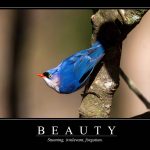
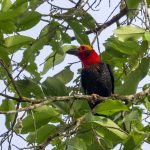
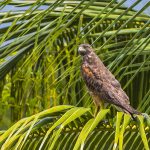
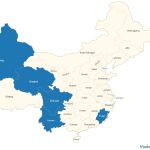
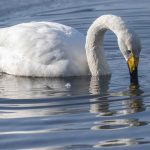
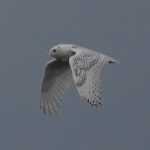
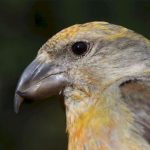
I read this article yesterday and am conflicted on the premise. While I recognize that some species cause damage to their new habitats after being brought (however they were brought) by humans, I don’t agree that it’s proper to think of these animals as “lesser” or unimportant. I feel like it’s an arbitrary decision for someone who is morally opposed to hunting to decide it’s OK to kill “invasive” species.
Animals expand their ranges in all kinds of ways – whether it’s classic “invasives” like House Sparrows or less-obvious choices like the Canada Goose the author is shown de-feathering in the photo or the Pukeko in NZ. I don’t have a problem with hunting/eating animals, and I don’t have a problem with controlling harmful invasive species. I do believe, though, that if someone has a moral objection to eating/hunting animals, relying on the sticky notion of “invasiveness” is not a great justification.
I’m sure the author puts a lot more thought into this issue than I have, and I’m eager to read the book.
I think the point is that if you are vegetarian because of animal welfare (the way animals are factory farmed) or ecological reasons (the unsustainability of farming animals) then the consumption of hunted meat from introduce species bypasses those concerns.
Opposition to hunting, like vegetarianism, can stem from numerous objections and not all opponents feel the same way about it. If you concede that introduced species must be controlled, as most ecologists do, then it is hardly a leap to suggest that it is acceptable not to waste the meat.
I feel more virtuous eating a wild animal that has been despoiling its environment over a factory-farmed creature. White-tailed Deer overpopulation across the U.S. has been deleterious to undergrowth and the species that rely on it. So let’s have more venison chili until the populations reach more sustainable levels!
If I recall correctly, this was a major thrust in the Omnivore’s Dilemma, one of my favorite ecology books. I think the author hunted feral pigs in Hawaii, an ecological blight if ever there was one.
Deer are so overpopulated here in Iowa that they are “backyard” animals for even the city population. Considering the number of people who go to bed hungry, I, too, think we should have a veritable open season on deer. And, for the most part, that goes for any invasive species that is edible. Animals eat other animals, and I have no qualms about eating an animal, per se. Hunting seems like a fair part of the food chain game. I don’t support the inhumane treatment of animals or any of the factory-farm stuff, but culling the overpopulated and the invasive seems to make a lot of sense.
That said, I don’t think I ever want to eat a wild Canada Goose! I have heard that lion fish is quite delicious, though.
I’ve read some of Landers work and I can’t help but have a lot of cynicism about these types of arguments and practices, speaking as one who’s encountered a lot of “varmint” hunting in the field. Something that may have no importance for anyone here but which matters to me personally, is that I’ve seen untold amounts of cruelty inflicted on wild birds and mammals under the auspices of legal activities to eradicate pests. When it comes to unprotected species like pigeons, coyotes and prairie dogs, and even American Crows during regular hunting seasons, native or not, the wanton disregard is sometimes unfathomable, precisely because people view these animals as waste animals. There’s one particularly unpalatable website devoted precisely to the destruction of crows, but I can’t legitimize them by name.
Although I understand the scientific concerns and issues surrounding invasive species and am not arguing against viable and thoughtful solutions to a difficult dilemma, my personal experience suggests that animals suffer frequently when labels like “invasives” allow individuals to do as they please under the auspices of ecology or sustainability. So, even though I realize that for some, the ends will justify the means here, particularly with species that are damaging and voracious, I personally don’t believe that it speaks to the best of our nature and how we can better preserve and protect our wildlife and wild lands, when we frame any wildlife issue from a strictly utilitarian and coldly anthropocentric perspective.
Duncan wrote, “the danger is that the hunters want some level of introduced species to be maintained so they can keep hunting.” When you consider that many of the invasive species were brought here precisely for that reason originally, it’s not unthinkable that this could be the case. Look, for instance, at deer overpopulation. In some areas, wildlife agencies manage deer populations for the benefit of hunters … by clearing areas or maintaining growth that is favorable to deer. So, I see Duncan’s point as a legitimate point, when you look at current examples where this is, in fact, being done. Add to this that high-fence hunting ranches and game farms breed non-native species precisely for the purposes of shooting sport, even today.
Lastly, in terms of sourcing meat, I’d encourage people to look up the work of Jeff Anhang and Robert Goodland, as well as some of the writings of George Wuerthner (a hunter himself) who all argue for dramatic reduction of meat consumption in general, as the only truly sustainable practice in an exponentially growing population and as one of the best ways to preserve or reclaim more habitat for wildlife. The majority of crop land is used to crow monocrops to feed the livestock industry, which in turn, is significant contributor to climate change (anymore from 18 to 51 percent of greenhouse gas emissions, depending on which reports you read). This point seems like a digression from hunting invasive animals, but I bring it up because it really is starting to look as though the best way to help native species and open habitat is to re-frame the entire question from what meat should we eat to how much should we really be eating, wild or domestic, for the benefit of everyone, human and nonhuman alike.
p.s. I meant to add that I think opening up market hunting for any species, as Landers suggests in the interview, sets a dangerous precedent. Our current wildlife laws were obviously enacted to stop the slaughter perpetrated by early-century market hunters. I never thought wolves would be delisted and hunted in such quantity, so quickly, over the span of a single year. So, I can’t help but fear that it would be a short ethical step from selling invasive animals on the menu to expanding those horizons to other animals, once that door is open.
I have always attested to the fact that eating non-native, or over-populated species (such as White-tailed Deer in parts of the US), may be THE most eco-friendly food on the planet, easily beating out any sort of locally grown “organic” foods. Additionally, these foods are usually more nutritious than their farm raised counterparts. This goes for plants and animals.
As humans on this planet, it is our responsibility to try and keep ecosystems intact as effectively, and aggressively as possible. If that means some animals, such as non-Eurasian House Sparrows, have to die, then so be it. I do agree that things need to be done humanely though. Finding secondary use of these species is icing on the cake, or maybe gravy on the backstraps?.
On the other hand, as alluded to in the original post, some species become so highly esteemed by hunters that steps to preserve them in the landscape come into play to ensure there are huntable populations. For examples, look at wild boar in the US, some states they are kill on sight vermin, others they are regulated game animals.
There are unfortunately no easy solutions to exotic, invasive and overpopulated animals, but that doesn’t mean we should just sit back and let our degraded “nature” take its course.
Great topic Duncan.